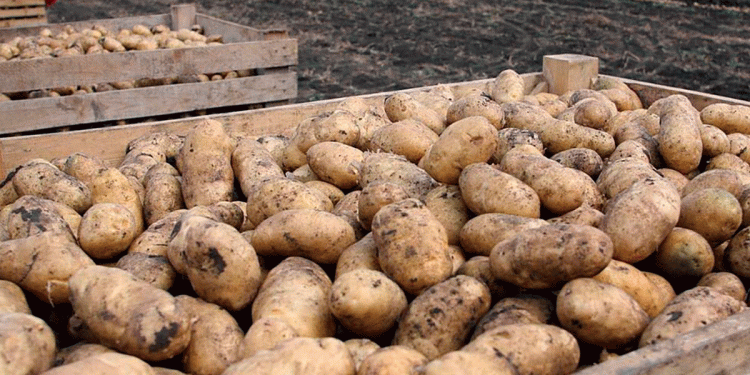Income Insurance for Potato Farmers and Strategic Storage of Crop
The Haryana government continues to support farmers by expanding the coverage of the Bhavantar Bharpai Yojana (BBY) to include potato growers. The government is advising farmers to use cold storage in case of a fall in potato prices to preserve their crops and minimise financial losses.
BBY is an initiative that aims to protect farmers from sharp market fluctuations by providing a guaranteed minimum revenue from sales.
How does the scheme work?
- The protected price is fixed based on the cost of production of the crops.
- If the market price at the time of sale in wholesale markets falls below this level, the government will compensate the difference.
- The scheme covers 21 crops, including 5 fruits, 14 vegetables and 2 spices.
Since the launch of the programme, 3,15,614 farmers have registered 702,220 acres of crop land and over 24,385 farmers have already received financial assistance worth Rs 110 crore (around US$ 13 million).
Who can avail the support?
- Land owners
- Land tenants and users
- Producers who have registered their crops on the Meri Fasal Mera Byora portal
Once the crop is sold, farmers receive a gate pass and then a J form, which is required for compensation.
Additional social initiatives by the government
Apart from supporting farmers, the government is also paying attention to social issues. In particular, the salaries of village watchmen (Gramin Chowkidars) have been increased from Rs 7,000 to Rs 11,000 per month and the process of issuing them identity cards has also begun.
Currently, there are 7,301 watchmen in Haryana, of which 4,927 positions have already been filled. The remaining positions will be advertised soon.
Prospects and Importance of the Scheme
The Bhavantar Bharpai Yojana program is an important step in protecting farmers by providing them with a stable income irrespective of market fluctuations. Including potatoes in this list will provide additional confidence to producers and stimulate the development of crop storage in modern conditions.
Do you think a similar subsidy system can be effective in other countries where farmers face sharp market fluctuations? Share your views!







